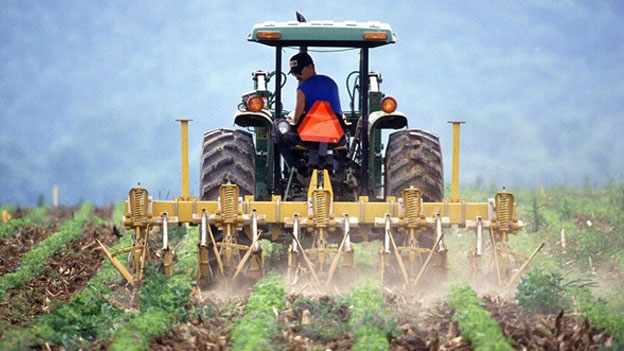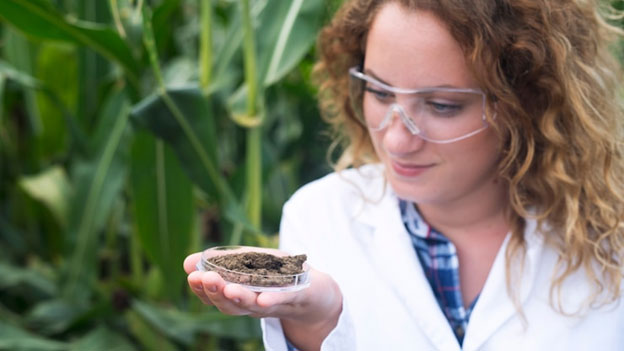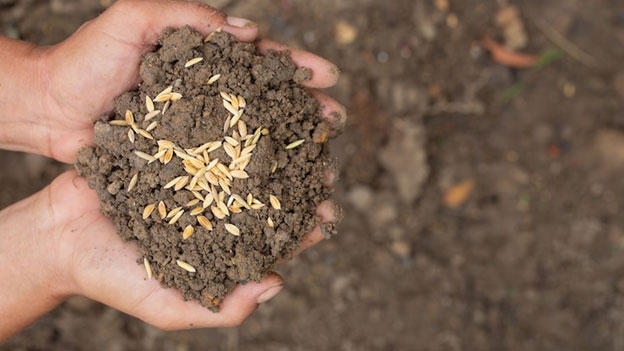Top 7 Methods To Improve Soil Productivity
The natural capacity of soil to provide plants with nutrients in the right proportions without any hazardous materials is known as soil fertility. Associatively, the earth's capacity to generate crops per unit area is known as soil productivity. Therefore, depending on the crops, marketing conditions, and several other circumstances (such as poisonous material, poor physical characteristics, or a lack of water), the soil may or may not be productive.
In recent years, the dependence on fertilisers has increased to generate tonnes of food and feed the ever-growing population of India. However, chemical fertilisers added to soil to boost its fertility have resulted in more bad than good. Excessive use of such fertilisers in soil has led to the damaging of crops, chemical leaf scorching, raising air pollution, acidifying the soil, and depleting it of minerals.
Thus, the need of the hour is to go organic and that goes beyond food alone. Living and working in harmony with nature is the essence of embracing organic ways. In that sense, organic farmers contribute to a brighter future for people, animals, and the environment – they refrain from using synthetic inputs and promoting natural systems. As a result, good soil produces healthy plants which, in turn, ensures healthy nourishment for humans.
Natural and Cost-Effective Ways of Upgrading Soil Productivity
Mixed cropping
Sowing various crops in the same field is a lesser known yet super effective technique for increasing soil productivity and fertility. It prevents soil erosion and the spread of plant diseases that are transmitted via the soil. Additionally, planting legumes will improve the soil by adding nitrate. Utilise deep-rooted veggies wherever possible to improve soil fertility organically.
Tillage Reduction
Continuous tillage leads to increased soil erosion which, in turn, decreases fertility. Tilling exposes the lowest layers, typically those with moisture, which causes the water to evaporate and decreases the soil's moisture content. By minimising tilling, the existing organic materials can decompose and give appropriate nutrients to the soil.
Optimal Weeding Procedures

Soil moisture decreases when weed control techniques are not used. Weeds result in damaging soil productivity. Off-season tillage, adequate seed-bed preparation, timely sowing, and the use of weedicides can all be used to suppress weeds.
Soil Examination

A soil analysis helps determine the nutrients that the soil needs. Because soil types vary, different amounts may be required to maintain soil fertility. Crops can be grown in many ways and different chemical agents can be used to eliminate pests and illnesses. Remember, crop development and the existence of microbes are both favoured by nutrient-rich soil.
Use Soil Fertilisers Wisely
The micro-organisms in the soil that aerate it and supply nutrients are destroyed when synthetic fertilisers are used. Therefore, it is best to apply only what is necessary, which is typically determined after performing a soil test. There is a widespread misconception that soil vitamins increase with the amount of fertiliser applied to them. This is untrue. On the contrary, overuse of soil fertilisers and pesticides (using inorganic techniques) reduces soil fertility.
Compost Tea
Farmers choose this fertiliser because it is affordable, non-polluting, and favourable to the environment. It protects the plant from many bacterias. It is simple to create and entirely organic. As long as you have compost, you can do it yourself.
Green Manuring
Green manure prepares the soil for subsequent crops by absorbing and storing soil nutrients. These crops aren't picked because doing so would remove nutrients, therefore they're tilled into the soil while still green. When turned back into the soil, plants degrade and release nutrients to the following crop. It is beneficial for use both in large farms and small gardens.
The farming methods we select have a significant impact on many aspects, including biodiversity, human health, and climate change. While there are several strategies to enhance soil quality, the main objectives are to lessen compaction, add organic matter, and generate abundant food using natural ways.





